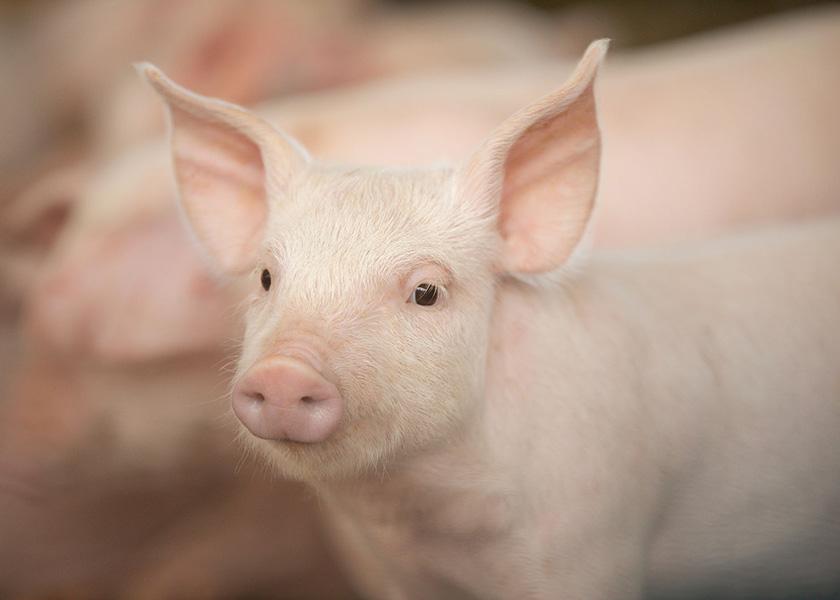PRRS Prevention Could Reduce Antibiotic Use on Pig Farms, Iowa State Study Shows

As antimicrobial resistance concerns grow, large investor groups are putting increased pressure on major food service organizations to reduce antimicrobial use in their protein supply chains, PIC shared in a release. Food companies are responding with antibiotic stewardship pledges and looking to their protein suppliers to help achieve these commitments.
“Consumers are interested in learning where their food comes from and how it is produced. They expect high standards of animal care, antimicrobial stewardship and sustainable production practices,” said Banks Baker, global director of product sustainability at PIC, in a release. “The food system can deliver on these expectations, but we need innovative solutions and new technologies to do it.”
Just like human medicine, gene editing can be used to provide disease-resistance benefits to improve animal health.
"If gene editing can help reduce the overall amount of disease in a swine herd, it can help reduce the need to use antibiotics in pork production," PIC said in a release.
How Gene Editing Can Protect Pigs from the PRRS Virus
For more than 30 years, pork producers have had to battle Porcine Respiratory and Reproductive Syndrome (PRRS) virus. This devastating virus suppresses pigs' immune systems making them more susceptible to secondary infections that may need to be treated by antibiotics.
“PRRS is a viral disease with immunosuppressive effects on swine that can worsen the clinical impacts of bacterial co-infections. As a result, veterinarians need to use additional antibiotics to care for the affected animals,” said Isadora Machado, a graduate research assistant at Iowa State University (ISU) College of Veterinary Medicine, in a release.
Machado recently led a research project to quantify how PRRS outbreaks impact antibiotic use on a pig farm.
The study found the following:
- Injectable and water antimicrobial use in groups of nursery pigs increased 379% during the 15-week epidemic phase after the farm became PRRS-positive.
- The use of injectable antibiotics also increased 274% in older pigs, closer to market weight.
- While both groups showed a significant increase in antibiotic use following a PRRS outbreak, there is a greater impact on nursery and grower pigs because their immune systems are less developed than finisher pigs.
"PIC developed a solution to protect pigs from the PRRS virus," PIC said. "Using gene editing technology, PIC deleted a very small portion of the pig's DNA that encodes a protein that the virus uses to enter and infect the pig's cells. With this small gene edit, the pig is resistant to PRRS, as the virus is unable to enter the cells and replicate. Like humans inherit traits from their parents, the pig’s offspring will inherit the PRRS-resistant trait."
Around the globe, the pork industry is continually challenged to do more with less and meet consumers’ evolving expectations for agriculture and protein production. Predictability feels like a thing of the past, Matt Culbertson, chief operating officer at PIC, previously told PorkBusiness.com.
Between inflation and volatility, labor and staffing, animal health and welfare, geopolitical uncertainty, antimicrobial stewardship and food availability/affordability, there are many factors stacked against swine production and agriculture right now.
“I believe we need to continue to challenge ourselves and look for innovative solutions to try to combat some of those factors working against us to make life a little bit more predictable and enjoyable for all of us going forward,” Culbertson said.
PIC said it is working to secure approval for the PRRS-resistant pig in the U.S., Canada, China, Japan, Mexico and Brazil along with other pork-producing countries. Each country has a unique regulatory system and biotechnology policies that will affect the approval process and timeline.
“Adopting the PRRS-resistant pig can have secondary benefits, including improving the overall health of the herd and reducing the need to use antibiotics,” said Lucina Galina, DVM, technical project director at PIC, in a release. “This is one way PIC is supporting antimicrobial stewardship in animal protein production, and helping food system stakeholders meet animal welfare and antibiotic reduction goals.”
PIC said it anticipates a series of regulatory decisions over the next few years, including a determination from FDA. The government of Colombia recently issued a favorable regulatory determination for the PRRS-resistant pig.
Read more:
The Path to a PRRS-Resistant Pig: A Look at What’s Next
Colombia is First Country to Issue Positive Regulatory Determination for PRRS-Resistant Pig







